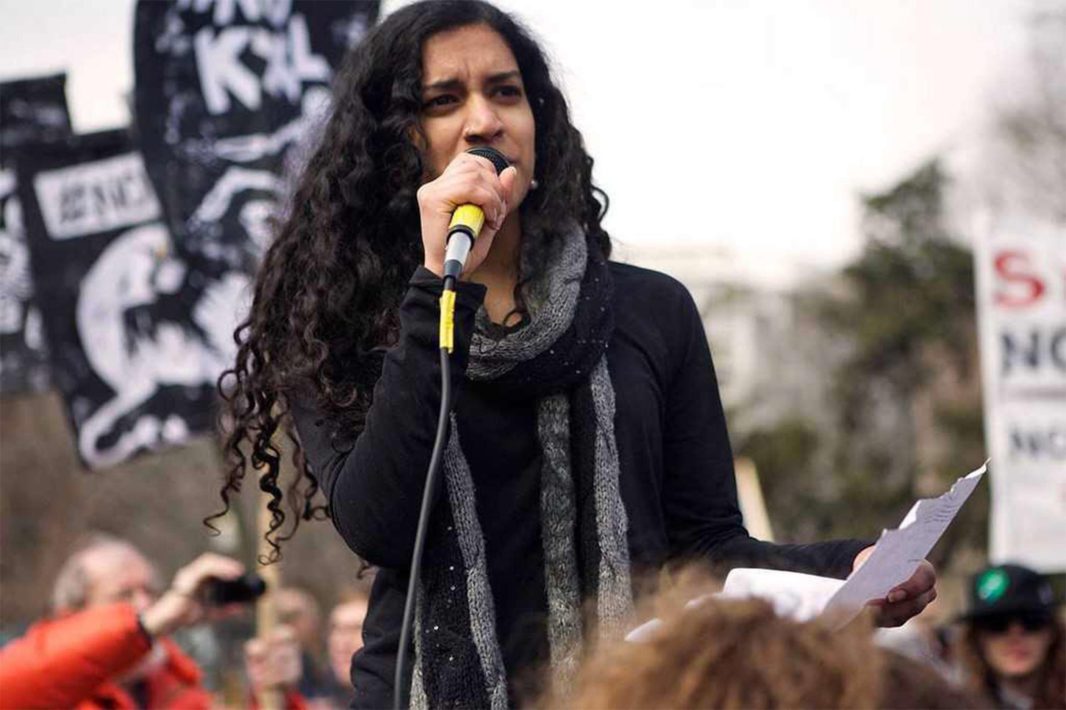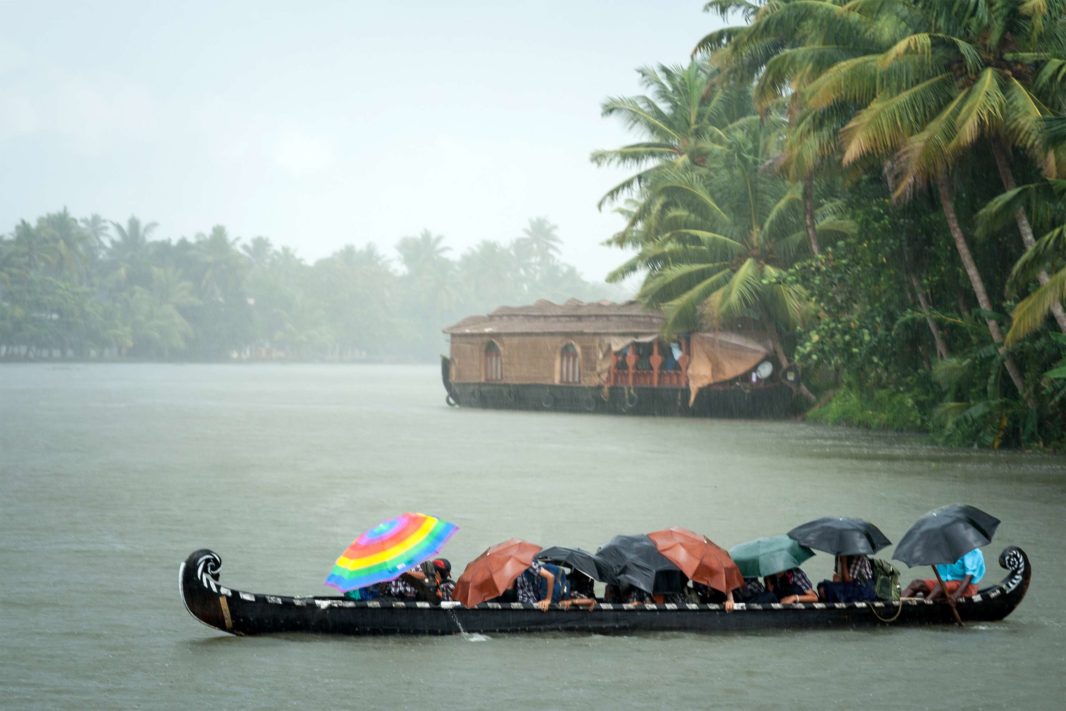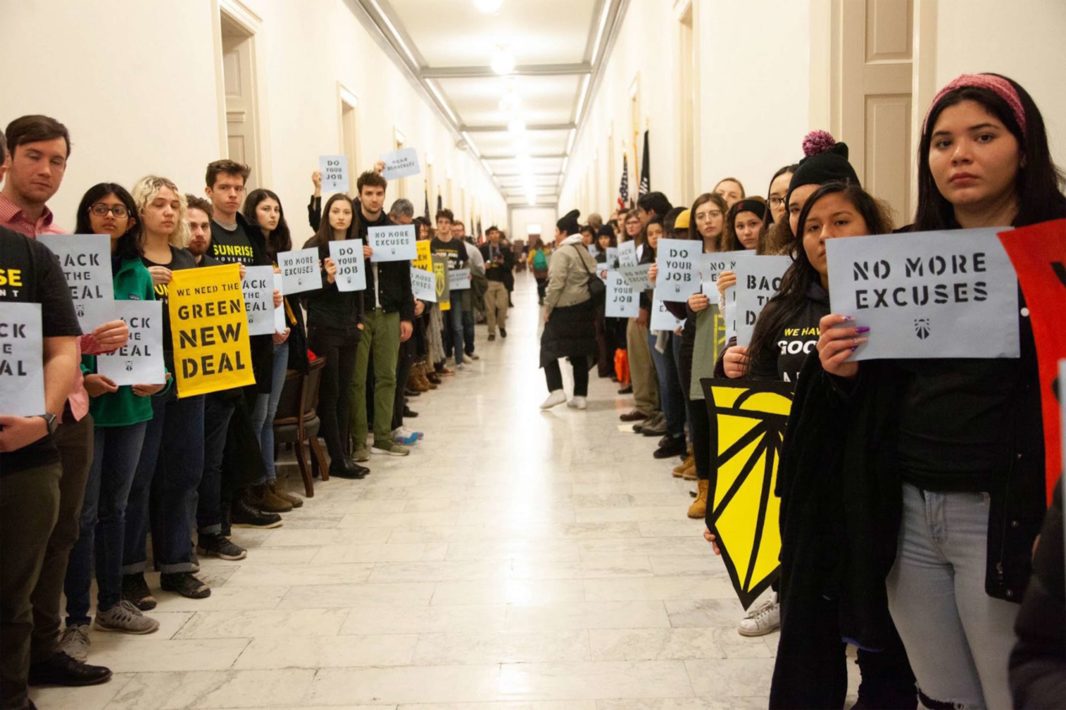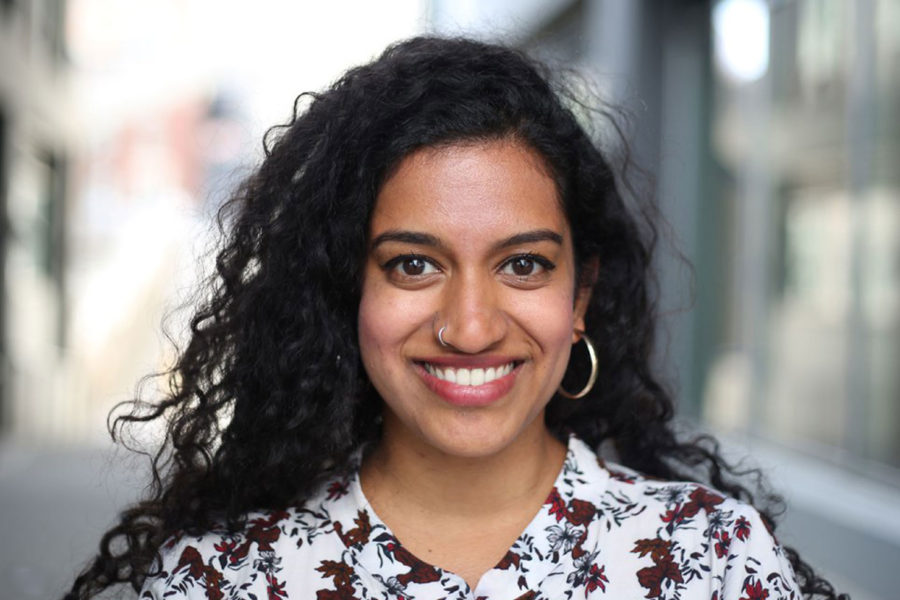Varshini Prakash’s relentless drive to protect the planet from manmade destruction has rocketed her to the top rank of grassroots activists shaping politics in the 21st century.
Since launching the Sunrise Movement two years ago, the 26-year-old Massachusetts native has helped put climate change resistance at the top of the agenda facing candidates for the White House, state houses and both houses of Congress.
Prakash’s battle for the soul of America aims at turning the nation’s conscience towards the threats of fossil-fuel emissions endangering Mother Earth. Her methods of direct confrontation, even protesting putative allies in the fight against global warming, are controversial, but effective. The left-wing movement’s powerful one-two punch of savvy social media use and occupation tactics has resulted in 16 of the 24 Democratic presidential candidates signing on to the sweeping Green New Deal blueprint for accelerated climate-change protections and far-reaching socio-economic reforms.
The Sunrise Movement even got an ironic shout-out in a recent “Doonesbury” Sunday color comic strip, the ultimate barometer of left-leaning Baby Boomer politics.
If the soaring rhetoric, chants and sit-ins to push the Green New Deal harken back to the raised fists and locked arms of demonstrators from the 1960s, it’s no accident.
“We need to get back to that place where we were 50 years ago when we saw some of the most sweeping environmental and civil rights legislation passed in our country’s history,” says Prakash. “We need a level of civil resistance and massive mobilization that we haven’t seen in decades. We need tens of thousands of new, young, fresh people who are passionate and will be a vehicle in the political community to enact their vision for the world.”
Winning Support for the Green New Deal
Back in January, Prakash was an attractive face in a sea of visitors to the House Gallery, a guest of U.S. Sen. Edward J. Markey (D-Mass.) during President Trump’s State of the Union address. Markey, the Senate sponsor of the Green New Deal, joined Prakash four months later for the launch of the Sunrise Movement’s 15-city tour to make the landmark legislation the law of the land.
The inaugural event at the Strand Theater in Dorchester saw a line of millennial activists wrapping around the block to enter the old vaudeville house in Upham’s Corner for an evening of rousing oratory. Prakash, dressed in black like a coffee-house poet, preached the gospel of economic transformation through universal health care, guaranteed employment and zero-carbon emissions by 2030.

Courtesy Varshini Prakash
Sunrise Movement founder Varshini Prakash
Over the next few months, whether motivated by fear or inspired by hope, candidate after candidate signed on to the Green New Deal or inked pledges not to take donations from fossil-fuel interests. A July sit-in at the Washington headquarters of the Democratic National Committee to force a candidates’ debate focused exclusively on climate change resulted in partial victory as both CNN and MSNBC offered to air candidate forums in September on global warming.
The next clash with the DNC will come in mid-September as Sunrise activists join a global climate strike to further pressure the party to host a climate debate. Halting global warming, argues Prakash, is the moonshot challenge of this generation and merits more than a handful of minutes in general debates.
Finding Her Voice in Massachusetts
Prakash’s experience in harnessing political power dates back to her undergraduate years at the University of Massachusetts at Amherst, where she led a successful campaign to force trustees to divest holdings in fossil-fuel companies.
“I dabbled in the issue while I was in high school but I really didn’t know what to do until I got to college and joined the divestment campaign. It took three years of serious organizing and confrontation to secure a system-wide victory,” says Prakash, who grew up in the Boston suburb of Acton and attended the local public high school.
“Varshini was born and educated in Massachusetts and has our revolutionary spirit wired into her DNA,” said Sen. Markey about Prakash. “She is a powerful voice of her generation, helping to lead an historic movement of young people who recognize that climate change is the most important issue facing the planet and its leaders.”
For Prakash, climate change is not just political — it is personal. Her parents, immigrants from India, trace their roots to Kerala on the tropical Malabar Coast on the Arabian Sea. The low-lying landscape, hemmed in by palm-lined beaches and the fertile slopes of the Western Ghats, has been devastated by unusually violent monsoons in recent years. Global warming, linked to an upsurge of volatile weather, has been cited as a cause of the storms that left scores dead in landslides and flooding.

People brave a monsoon in Kerala, India.
“Just last year I saw a million people in Kerala get displaced and have to exist in refugee camps. I was astounded by the fact that just a couple years ago, the place where my dad grew up got so hot in the middle of the summer that 1,000 people literally dropped dead in a period of one week because of the heat,” she says. “And, we haven’t even seen the worst of what climate change will bring with ever-worsening floods and storms. It’s our moral duty to stop the suffering where we can.”
Enacting Change, Now
The Sunrise Movement is headquartered in Washington with a small staff, an annual budget of under $1 million, and an outsized impact that first drew national attention when Sunrise protesters took over incoming House Speaker Nancy Pelosi’s Capitol Hill office last fall.
During the sit-in, newly elected firebrand Congresswoman Alexandria Ocasio-Cortez (D-N.Y.) — the original House sponsor of the Green New Deal — stood on a desk and congratulated the sit-in volunteers for their activism. Prakash offers no apologies for taking on an icon of the left.

Courtesy Sunrise Movement
Sunrise Movement outside Rep. Pelosi’s office
“On the one side, we have the GOP that has wholly embraced climate denialism while catering to big wealthy political donors from the oil and gas industries,” she says. “On the other are Democrats who claim they want to do something about climate change but have failed to show the moral courage to back up their words with action. We believe the Democratic Party can stand for more. We can no longer accept excuses to avoid taking action and condemn future generations to a life of chaos and violence. If we don’t act now, then when?”
Prakash travels extensively for work but lives in East Boston, one of the city’s neighborhoods that is most vulnerable to rising sea levels. When not frightening politicians to toe the Green New Deal line, she and her fiancé, Filipe Carvalho, run hoops at the local park, take long walks along the harbor or go out for Mexican or Vietnamese food.
She met Carvalho, a data analyst, in college, when she was on the barricades protesting coal investments and he stood on another battling student debt — a case, perhaps, of love at first fight. Their wedding is tentatively scheduled for 2020. “But Donald Trump is really messing with my wedding plans,” says Prakash. “Don’t tell my parents, but I think we’re looking to 2021.”



 6 min read
6 min read

